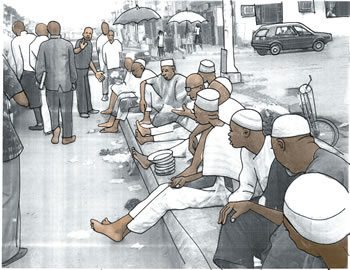Nnaji told the News Agency of Nigeria (NAN) in Enugu on Wednesday that most beggars in the city were not doing so out of destitution.
“Those we call beggars are not really beggars, they are professional beggars,” she emphasised.
Nnaji expressed dismay that efforts of the state government at rehabilitating the identified beggars at the designated centre had been thwarted by those she described as `professional beggars’.
According to her, those professional beggars will always force their way out of the centre to the streets by breaking down the doors and windows.
She said that about one percent of street beggars were real destitute while 99 percent were `professional beggars.
The commissioner noted that the professional beggars engaged the services of a few other beggars to make returns to them at the close of their activities.
“The professional beggars hire destitute to be their guide for a day and after using them to make money, they will give the destitute little percentage and go home with the rest of the proceeds.
“Some of the professional beggars also hire children of indigent families and at the end of the day, they pay the parents.
“The professional beggars are able-bodied men and women who were not sick.
“They break our rehabilitation centre fences and even jump over the wall to return to the street the next morning.
“We do not have a problem with the mentally challenged people because if you keep them inside the rehabilitation centre, they will remain there but those professional beggars will run back to the streets,” she added.
She attributed the attitude of professional beggars to the degree of patronage they received from the society because, according to her, “some people throw bundles of money to them as alms”.
Nnaji noted that daily returns of the so-called professional beggars from begging were higher than the legitimate earnings of some gainfully employed graduates per month.
The commissioner urged the general public to desist from patronising them in order to dissuade people from the practice.






